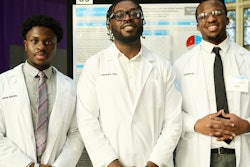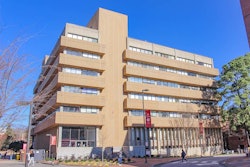From Camden to Hopkins to Meharry
Where do you go when you are a poor, Black boy growing up in Camden, Ark., a rural, blue-collar town, in the late 1950s? Hildreth went to Harvard, Oxford and Johns Hopkins. His own experience with health disparities sent him on his journey. But first he got really angry.
Hildreth was only 11 years old when his father developed renal cancer and had no health care options.
“All that we could do was watch him wither away and die,” remembers Hildreth, who served as a researcher at the National Center on Minority Health and Health Disparities. “I was angry then, and I’m still angry now, because in my mind, it was a health disparity that caused my father’s death. So my life’s goal at 11 years old was to get into Harvard, so I could get into medical school.”
Hildreth wanted desperately to become a doctor, although at the time he had never seen one that looked like him in Camden. He credits his mother, Lucy Mae, for helping him re-direct his tightly held anger into “being a good student” and for making sure that he pursued his life’s goal. He grew up under the care and watchful eyes of Lee Davis, his scout master, and Mrs. Washington, a school librarian. “They helped me get into Harvard,” Hildreth says.
And he heeded the advice of a handful of astute teachers. They told a young Hildreth that to become a doctor meant first getting the best science training. For them, it was Harvard University, recalls Hildreth, who read at age 13 that “Eight out of 10 pre-med students who went to Harvard got into medical school. As improbable as the odds were against me, I believed that I would make it.
“God has ordered my steps all the way,” says Hildreth of a life that has defied the odds. “Getting here, to this place in time, has even been better than I imagined. Being a scientist has been so much more than I ever hoped for. I am blessed.”
© Copyright 2005 by DiverseEducation.com


















